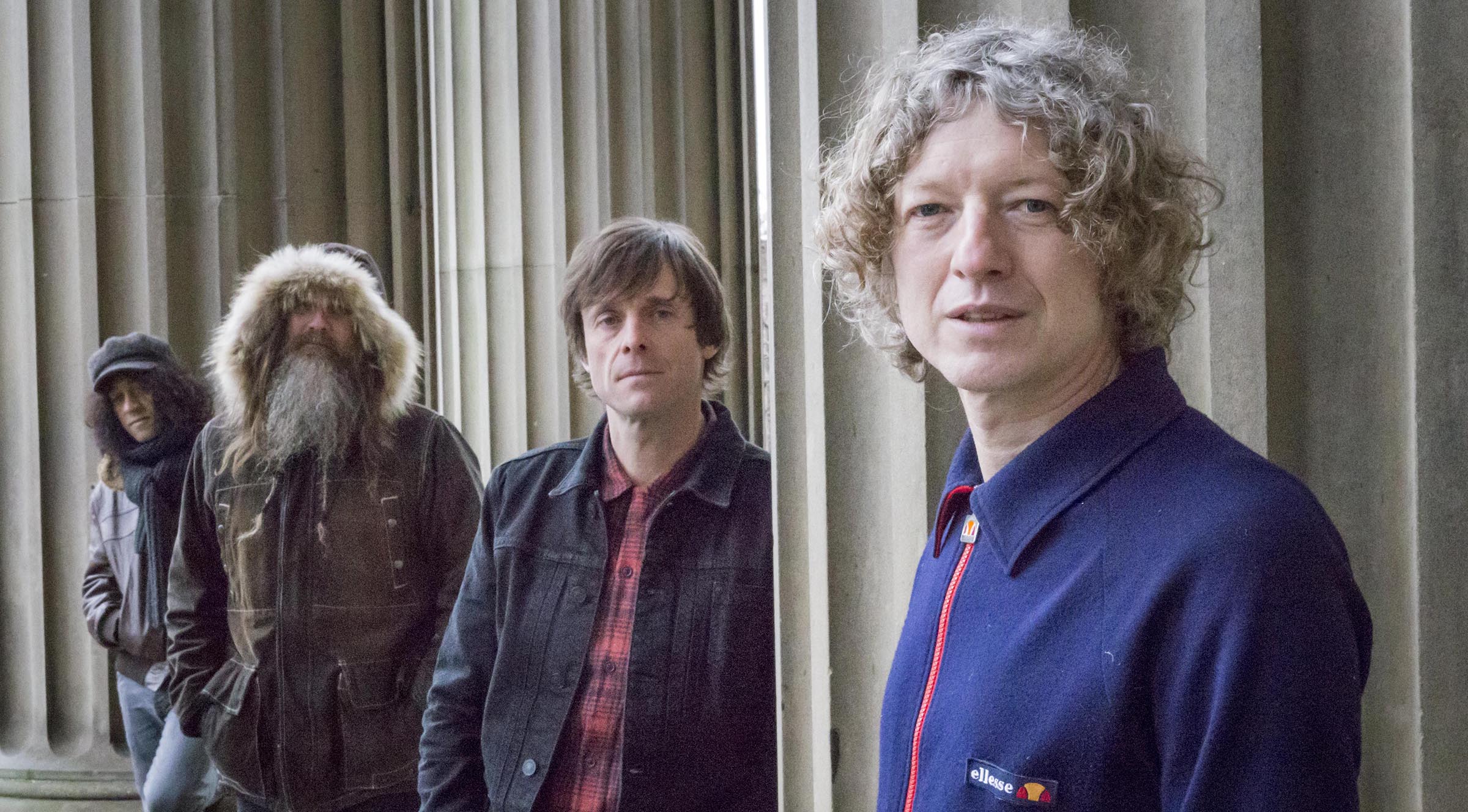
Liverpool legends Cast celebrate the 25th Anniversary of their classic debut album ‘All Change’. Originally released on 16th October 1995 it became the highest-selling debut album in the history of the Polydor label.
The album was recorded and mixed at The Manor and Sawmill studios with producer John Leckie, produced top twenty hit singles ‘Fine Time’ followed by ‘Alright’ with Sandstorm’ and ‘Walkaway’ both reaching the top ten. Mark Millar caught up with Cast frontman John Power to take a look back at each track from the seminal All Change album.
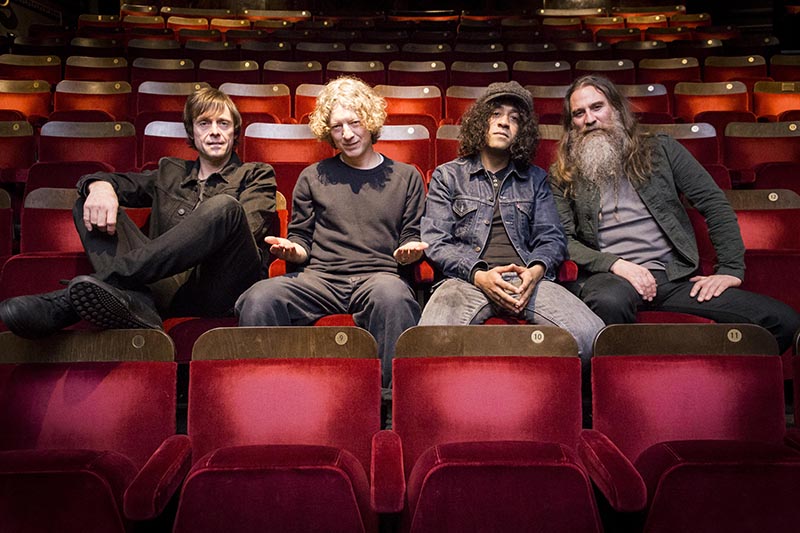
Before forming Cast, you were in the La’s. Would you have been happy if the La’s had kept going?
Yeah, when I was initially getting ideas for songs, I intended to record them with the La’s I had no intention of leaving. I wouldn’t have thought like that. Bits of certain songs from All Change came into being, were written and the ideas were forming when I was still in the La’s. We performed ‘Alright’ and ‘Follow Me Down’ on tours, and also, I had a verse or two of ‘Sandstorm’, and I might have even had a verse for ‘Walkaway.’ I remember writing a verse for ‘Fine Time’ in the dressing room at a La’s gig. Maybe half of the album was already in gestation, but the songs still needed work. And then it started slowly dawning on me that perhaps that was going to be my ticket. The La’s hit a state of inertia; it wasn’t just the physical side of life, but the spiritual energy was very low in all of us at that time.
The reality of us getting signed and numerous recording sessions and tours and problems within the tours and issues within ourselves were starting to tell on our bearing. It’s a weight upon your shoulders and somewhere within all that I started thinking, “Okay I’ve got these songs, and I may have to play my joker card and try and go and form something myself.”
I was in the La’s for such a long time, maybe five or six years, but in hindsight when you’re young, that’s quite a bit of your life. Lee Mavers was a fantastic partner in crime and mentor, and it was all very special. Still, I think it came to the point where everything was problematic. Simple things were becoming very complicated, and we lost sight of things through the industry and through ourselves and repetition of problems surfacing the same old way.
I thought somewhere along the line I needed to try something else for my own wellbeing. I had the idea for Cast by then, and every night in the show the last words to be sung were “The change is cast” from the La’s song ‘Looking Glass’. I thought that was a sign. At that age, we were into the mysticism of the universe which the band was well connected to. I thought, “the change is cast” and it’s telling me every night that that’s maybe what I’m going to have to do.
I had a handful of songs which were All Change. I had something in my pocket that I was convinced were great tunes. That doesn’t mean I came out of the La’s and hit the road running. It wasn’t like that. I didn’t have the right band or dynamics for a while. It took over a year of knocking it around and fine-tuning songs and writing other songs like ‘Tell it Like it is’, ‘Promised Land’, ‘Reflections’, Mankind, and History. They were all written post-La’s, but I had the nucleus of the album All Change, and I got stuck into it.
I had to make my mistakes as I was trying to put the band together because I had just come from being a guy who was playing the bass guitar and singing backing vocals. Then all of a sudden, I had to play rhythm guitar. I wasn’t a rhythm guitarist at the time, and I wasn’t a frontman or a singer. So I had to do that and try and get out of the shadow of the La’s.
The La’s is like a double-edged sword people had tried in a hindrance way to compare Cast and myself to when I was in the La’s. That was never what it was about the La’s are still a massive part of my life and how it’s shaped me, and I still have a love for those songs and a love for Lee as a songwriter regardless.
Once you had the songs and the classic Cast line up, when and where did you go into the studio to record All Change with producer John Leckie?
We went to Manor studios which Virgin records owned. It was one of the last big residential recording studios – I think we were the last band to record there. Once John Leckie heard I had a new band together he was very interested in checking us out and once he listened to the songs and came and seen us, he was in. We had just signed a record deal, and we spent the whole summer recording All Change in this large manor house that was supposed to be haunted, and we were recording what turned out to be a classic album.
We had already gigged the songs for a year they were all arranged right. None of the songs were carrying any excess: they had all been trimmed and were bulletproof. It wasn’t a breeze it was still quite stressful for me – it always was because I was the singer and I wanted to get it right. The rest of the band were great players. Pete was an accomplished bass player, Skin was an accomplished guitarist, and Keith was a dynamic drummer. I was this person who crafted these songs, and I threw a lot of myself into it, and it took me a long time to recover from that album. (Laughs)
Because you put yourself on the line and you take the punches – it can be an energy-sapping thing as well as being very uplifting and fulfilling. When I look back, people still have a fond affection for it. People I meet tell me they still play it and its lasted the test of time and I think it made an impression on people’s lives and that’s down to the band and the assortment of great tracks. It was a seminal record for people wherever they were when they connected with it, and it stayed with them, so that is amazing.
‘Alright’ is such a great track to start the album.
Yeah, it works as a record starter. That song was the one that gave me wings as a songwriter. I remember writing the verse in a friend’s house. There were twelve lads in a room about to go out somewhere. I lifted a guitar and sang that verse, and somebody turned around and said, “That’s great.” When you were young, you could remember it, and I remember keeping that. I thought, “Ah, that’s great. I’ve got something there.” Without meaning it, I was slowly putting the song together.
I knew I had something there, and it turned out to be something special. It was a soaring song which became the standard-bearer that gave me a taste for it. It wasn’t confident because confidence means you think you can do it and you know you can do it. I had a will to want to do it, but it gave me a taste for it and to understand what it’s like to write a song that you know is good and has got all the parts. It’s a great pop song and it’s uplifting and it’s powerful in its own right.
When I wrote Promised Land, I was writing about the weather and the way we are treating the planet. It’s an environmental anthem – that’s what its about. I don’t think I could ever write another arrangement like that because it’s so full of gear changes. There are about five verses that all mix around that become choruses and middle eights and changes – it’s a great song live. I was genuinely concerned and trying to sing a message. A lot of All Change has got messages on it. I was singing about what a Native American would sing. I was tuned in to the fact the planet was getting fucked over, and we were on the road to a wrong place. I quite often think about it now, it was recorded twenty-five years ago, so I wrote it a year or two before that. It’s an environmental call to arms.
Sandstorm is very close to my heart. The third verse is the first one I wrote. I sang that, and I loved the melody and the punctuation of it all and the actual shape of it – I still do. It’s a very special song that’s dear to me and very close to my being. Of all the songs that I’ve written, I still find a familiarity when I sing it and play it. It’s slightly childlike in its melody, and even my eight-year-old daughter sings it. She stood up in school and sang that on her own. She likes the tune, and I understand entirely why.
Mankind has a slightly Hunky-Dory sort of vibe. Dare I say it? It’s Bowie-esque in a Cast version. It’s another great song with a great melody and guitar riffs. We did some gigs in Liverpool last December where we played a different one of our albums each night, and we played All Change in full. One thing I realised when we played it was that it’s a youthful album. I had to run hard to keep up with it. It’s fast and it’s got energy. ‘Mankind’ is idealistic. A lot of the songs on the album are about your time, your place and your moment, And recognising that we as a generation have your chance to say something and shape things the way that you feel. ‘Mankind’ is just another chapter in that book.
Tell It Like It Is is a favourite song. I remember getting the intro riff and singing over it. The melodies just came to me, it’s a very haunting and wistful song, and there’s something unknowing and uplifting about it. I’m singing about that feeling of being taken over by something. And then the choruses are realist, trying to look through the bullshit and facades that we are given and told is what we are capable of and what we should put up with. ‘Tell It Like It Is’ says what it’s about and where it’s at.
I wrote Four Walls when I was still in the La’s. The verse I wrote in Eden studios when the La’s album was getting finished. The record we didn’t want to put out but did come out with Steve Lillywhite. I’m not sure that it was something to do with the fact that I had been sitting in the fucking studio for months on end, I don’t know. That was another funny time in my life. ‘Four Walls’ I suppose is based on frustrations and containment and wanting to soar when you’ve got lead boots on. I’m going through the songs, but I would also like it to be noted that I don’t want these to be the defining interpretations of the songs they are just me gabbing to you about them. (Laughs)
When you are sitting with a guitar, and an idea comes into your head, how do you remember it?
In those days I didn’t have anything. I had this feeling that if it was good enough, I would remember it in the morning. I would play the idea over and over and then go to bed. Then I would wake up and try and remember the chords. I eventually got a Dictaphone, and I had a little four-track when I left the La’s, and I did some demos for All Change on that. In those days, all you did was play the guitar all day, smoke a bit of weed, go to bed get up then play your guitar all day.
You couldn’t do it now because I’m older and things have moved on, and I’ve got different responsibilities. Still, in those days you could remember the song because you would go to sleep dreaming about keeping hold of the threads of the songs and then you would wake up. And once you had done that you would remember it; it would be in your head. I used to say to myself, “In the morning, if I don’t remember it, it’s not good enough.”
With Fine Time I had the verse when I left the La’s, but I didn’t have the chorus, and I didn’t have the middle eight. A lot of this album was written walking around. I had left the La’s, and I still had a circle of friends, and I was staying at my ma’s or staying wherever, and I would get up out of bed in the morning and just walk across to my mates’. If no one was in, you would end up wandering around all day trying to catch the trail of your buddies or somewhere where you think people would generally hang out and meet midday. So there was a lot of mulling things over as I was just walking around and ‘Fine Time’ was one of those songs.
I can specifically remember walking down roads, across parks singing the chorus, singing the middle eight and just singing the songs all day. I still make a lot of arrangements in my head. I’m working on things now I’ve got ideas, and I’m trying to find one idea to fit another. I’ve got many ideas all in different corners of the room of my head. Because somewhere down the line there’s always a perfect addition to an idea. Sometimes you’ve already got the chorus that you need, and I suppose that was the same with ‘Fine Time.’ I was wandering around, and I got it together. It became the first single off the album and the first single played on the radio, and it was a hit. It had a significant effect on all the band members individually. It was the song that they all finally realised that their dream was coming true, which is what it was. I think each of the band members will have their memory of where they were when ‘Fine Time’ came on the radio. The debut single from your debut album is on the radio in the summer we thought, “Shit this is happening it’s great! Everything I thought was going to happen.”
Fine Time is a vital record for what it says because it’s always a fine time to make the right decisions. It’s never too late to make the right decisions and there’s never a wrong time to make the right decisions although it might feel like you’ve missed it. The present is the time to make your life changes.
Back Of My Mind is a cracking song. The chords in that song are very much where we wanted to be. Three-chord wonders like The Who and the Rolling Stones. It’s a strong song with great beats and everything it fitted in great with the rest of the album and went down brilliant live. I think that’s the beauty of the album all the songs have an affinity and connection. All the songs are travelling in the same direction, and they come from the same place. In fact, they are the journey there’s not one song out of place with the album that’s why it’s watertight as an album.
Dare I say it, but Walkaway is probably the most well-known song that the band has done. Even people who don’t know the band know the song. You hear that descending scale all your life from Bach and some Motown or whatever – it’s a major scale. I was ultimately bound to write a song on that scale as well. It’s in C now, but I think it was in D and it was higher. I sang it, and I did record it on a Dictaphone, and my earliest memory is playing it back to a mate of mine. It was quite high, and I didn’t know I could sing that high I thought it sounded like an old soul song.
I said to my mate, “That’s me from the other night,” and I could see from his face that he was startled. He was a mate of mine who knew his way around a record collection, and I appreciated his musical ear. Every time you are writing a song, especially at that age and that period in your life you are looking for little nuances and things that people say or do.
You pick up on their body language instantly because you think your idea is great and you want to know if other people feel the same. Because if they do then you know you’ve got something and so when you initially play an idea or a song to someone without realising it you are finally sensitive to picking up on a shoulder shrug or a raised eyebrow. I remember my mate was like, “Eh?” And I thought bingo! I’ve got something here. ‘Walkaway’ became a classic song and its Cast’s most well-known song and its funny because it gets people emotional. I think some people have a had some quite poignant experiences in their life with it whether it’s splitting up or coming together. I’ve seen people kissing and crying to it. (Laughs) I’ve seen people falling in love to it, and I’ve seen people tearful because it reminds them of the time of some split or loss. It’s proven to be our anthem.
I had the riff for Reflections for a while and was playing when another friend turned around and said. “That’s great.” Once I had made up my mind that it was good enough to be a song, it came quickly and pretty much wrote itself.
History is a song within a song because Skin’s riff is so amazing that it becomes the motif of the track. Within that is a song which is quite stunning, and I’ve started playing that acoustically when I go out on my own. It’s a great track it’s got a great rhythm, and great chords and the words and lyrics are bang on it. When we play, it live its very psychedelic, and the structure of the song is something I’m very proud of. It’s another song that I love, and the lyrics have got everything, they say a lot it’s a kind of world observation – a world truth I would say. But it’s a great track, and the riff complements the song magically.
The little riff at the beginning of Two of a Kind was probably one of the first things I ever wrote. When I learned a G chord and a C, that’s what I did – I had that for ages. In those days we would be up at three in the morning with my mates, and I would sing it and play that little riff and melody. Which was nothing it was a real naïve riff like a little croon, and then it ultimately became the epic song of the album and always had to close the album. We used to finish our live shows with it as well. We hadn’t played it in donkeys, and I played it in December, and it was great.
I’m looking forward to playing them all on the upcoming tour – that’s what it’s all about. And there you have All Change.
The great thing about that era was when you released the singles from All Change the B-sides were great songs too like ‘Follow Me Down,’ and ‘Better Man.’
‘Follow Me Down’ actually could have gone on the album. Maybe I wanted to get rid of it because it was something I did with the La’s. I think in the very early days of Cast I was a little bit confused about where I was standing in my relationship with the La’s. Whereas now I can see things a lot clearer and my love for both bands and where I was. ‘Follow Me Down’ with the riff that Skin got and the Dr Who vibe going down on it on a waltz that could have easily been on the album. The B-sides where great, ‘Better Man,’ ‘Hourglass’ and ‘Satellites’ I had already written. ‘Better Man’ was one of the first completed songs that I had because I have memories of playing that outside the La’s practice place. I think it was the first song I played to a friend of mine Henry Epstein and he still reminds me about the first time I played it to him outside leaning on his car in the sun.
I used to write the B-sides a weekend before we went in to record them further on down the line and they always turned out kind of fun – not throw away, but because I hadn’t been working on them for so long, they always seemed to get where they needed to go.
Did you feel pressure after the success of All Change going in to record the second album Mother Nature Calls?
No, I didn’t really. When I think about the way I was, I was quite uptight and a bit angry. I’m a lot looser now and a lot more relaxed but then the tension was there, and that was just me trying to find myself. I thought Mother Nature Calls was a great album. The one thing I did was make a point of it not being like All Change when really in hindsight I should have made it more similar in its dynamics. I could have easily kept up the electric rock of All Change. I thought we should always try and do something slightly different on each album. A lot of people would have welcomed a follow-up album with the same kind of attack as All Change. I made Mother Nature Calls more acoustic although they’re acoustics on all the songs anyway. There was always acoustics going on underneath the electrics because I always wrote them on an acoustic guitar. But that’s another story altogether.
Will Cast be releasing a new album this year in 2020?
I want to think that we are going to try and record it this year. I had all these ideas, and I went in to demo them, and I came out with eight demos that are quite defined. They are not going to need much more work on them, and at the moment I’m just working on another three songs. I would ultimately like to make an album that’s as watertight as All Change. This album will be us going back to the line between the La’s and Cast and all the things that inspired All Change. It will be upbeat straight to the point kind of boxy rock n roll – something that even Cast haven’t done before.
All Change 25th Anniversary Tour! Tickets for the rescheduled tour: on sale now from www.castband.co.uk

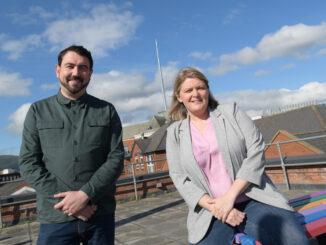
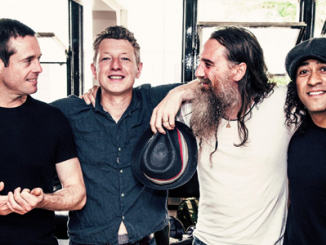
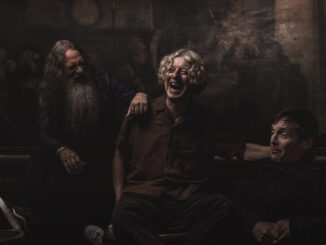

Be the first to comment